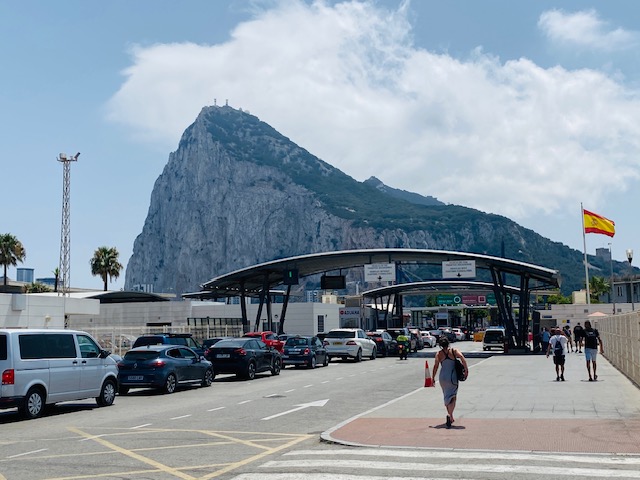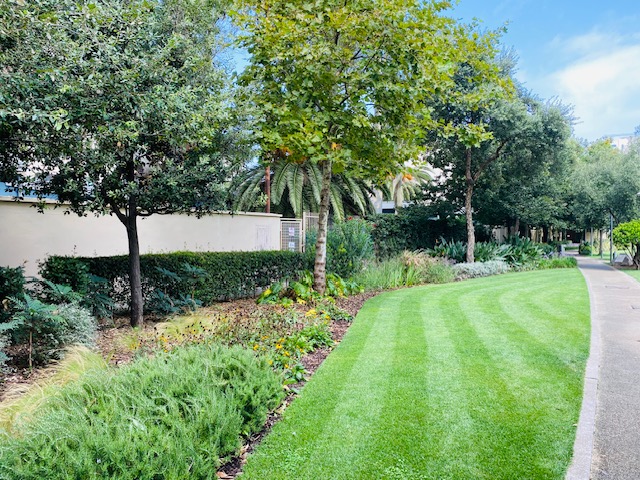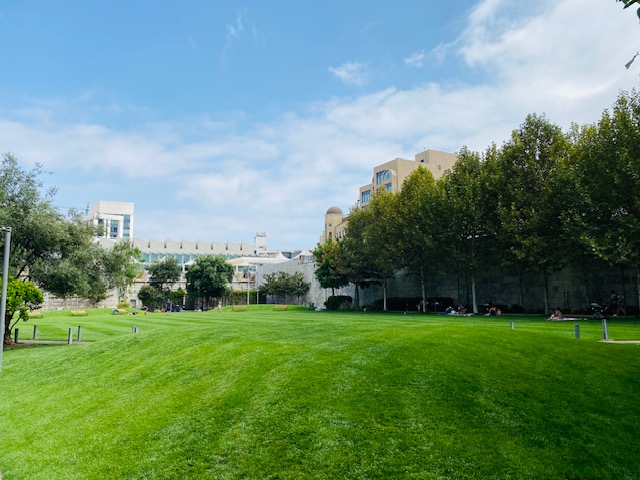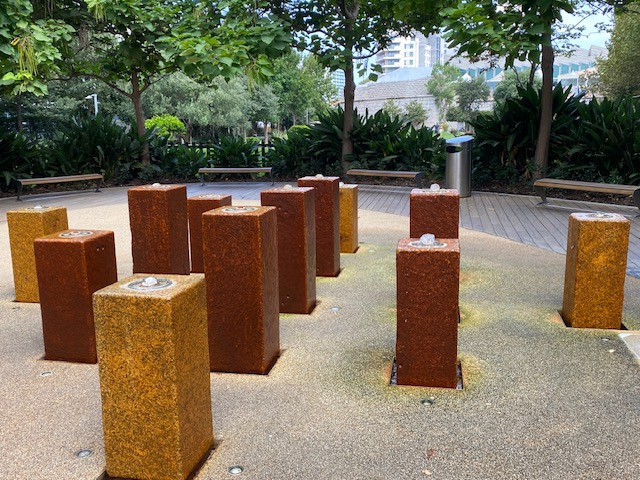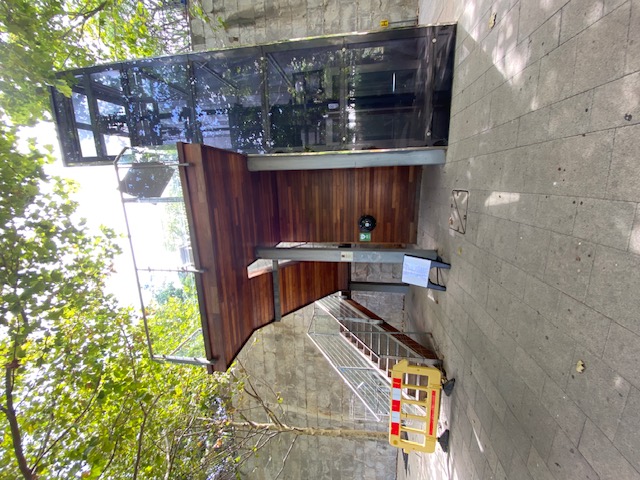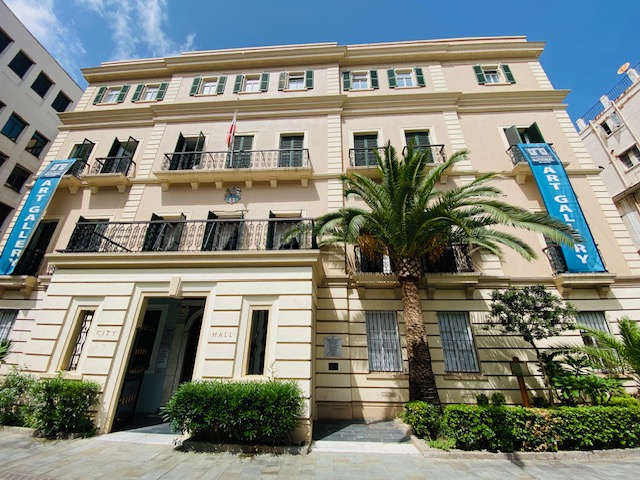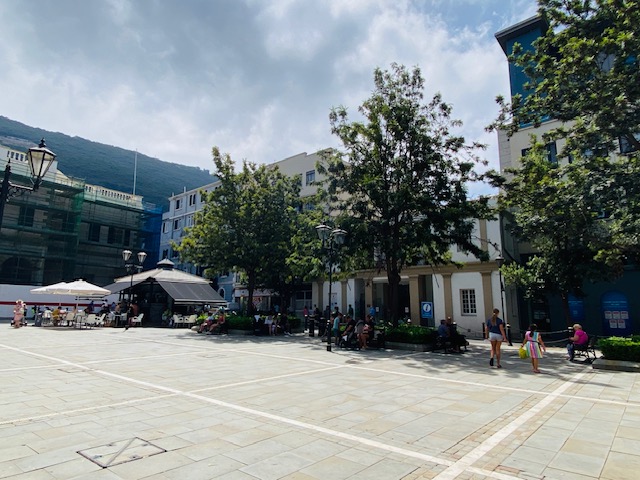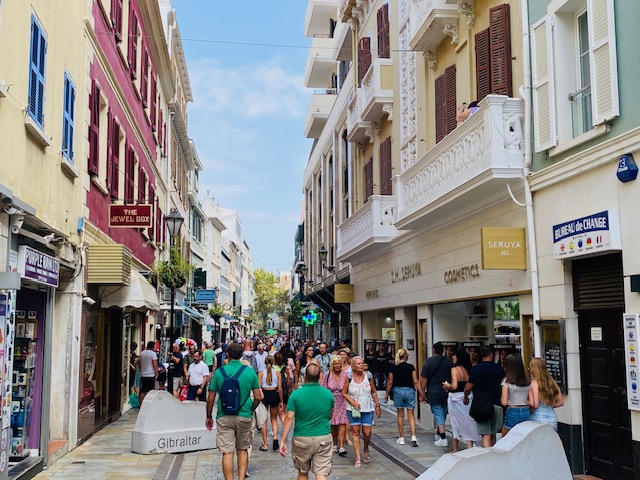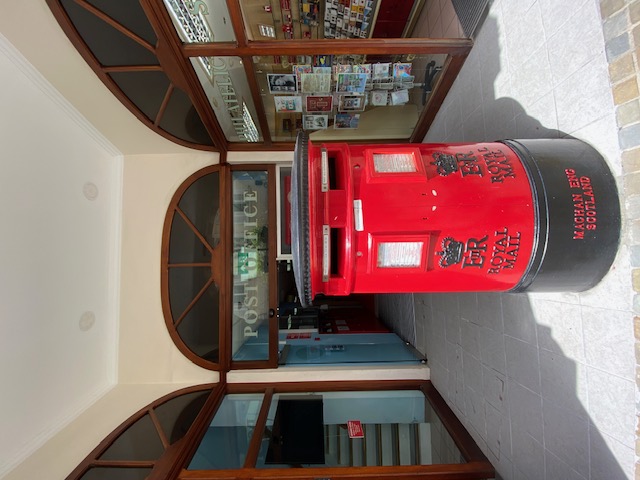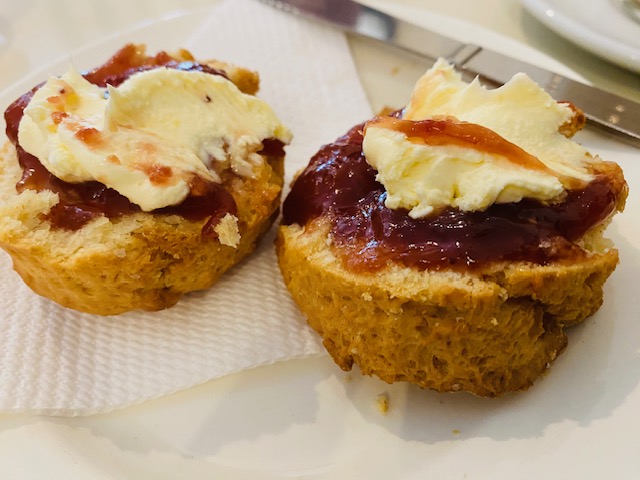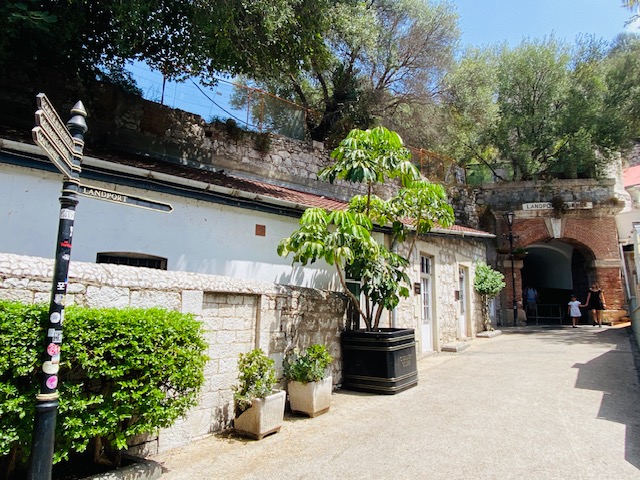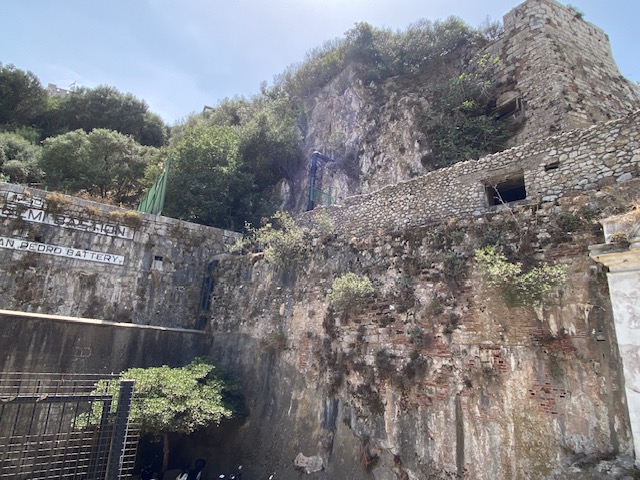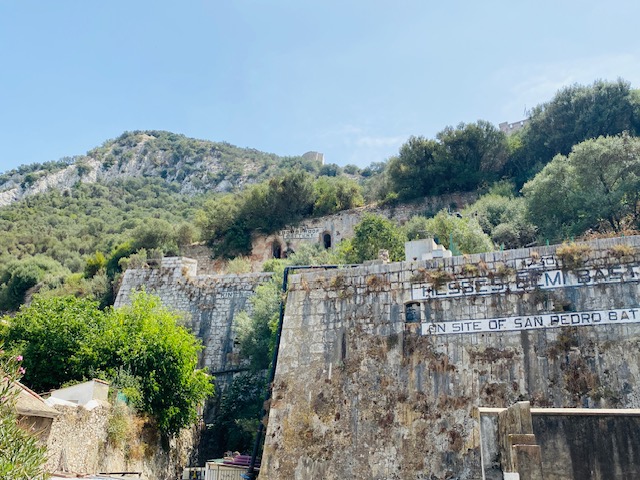Then, while Elaine prepared breakfast and tidied up, Roy gave the deck a cursory rinse before we set off on foot to cross the border into Gibraltar. Our singular mission was to post our Yellowbrick Tracker to England to have the battery replaced, using the Royal Mail service in the hopes of avoiding any complications or delays.
What we weren’t expecting were the long queues at the border crossing, but, thankfully these moved quickly and before we knew it, we were standing in mini-Britain.
Gibraltar is a British Overseas Territory and city located at the southern tip of the Iberian Peninsula, whose history spans over 2,900 years. The peninsula has been one of the most fought-over places in Europe, given that its position, guarding the entrance to the Mediterranean Sea, is unrivalled, and it seems the “fight” continues today after complications caused by Brexit, which remain unresolved. Although the Gibraltarians voted unanimously to remain in the European Union, they exited by defaulted when the United Kingdom did. An agreement to remain part of Schengen was reached in principle, but procedures around the latter have not be formalised and negotiations have basically stalled. Unfortunately, though, Gibraltar has no direct say in the negotiations between the UK and the European Union, since the duty and responsibility of dealing with foreign affairs rests with the UK, as do the duties of defence and internal security in Gibraltar.
Gibraltar and its people have witnessed many sieges and battles over the centuries, with recorded history beginning around 950 BC with the Phoenicians, who were amongst the first to recognise and worship the genius locality of the place, followed by the ancient Greeks, Egyptians, Carthaginians and Romans.
After the collapse of the Roman Empire, Gibraltar became part of the Visigothic Kingdom of Hispania and then came under muslim Moorish rule in 711 AD and renamed to “Jebel Tariq” (Mount of Tariq) after the muslim commander Ṭāriq ibn Ziyād, who led the capture of the territory. The muslim occupation was permanently ended by the Spanish in 1462. Isabella I annexed Gibraltar to Spain in 1501, following which the territory became part of the unified Kingdom of Spain and remained under Spanish rule until 1704. However, it was eventually ceded to Britain under the terms of the Treaty of Utrecht of 1713 after Spain lost the War of Spanish Succession against an Anglo-Dutch fleet.
This treaty stated that: “The town, castle and fortifications were to be held and enjoyed for ever without any exception or impediment whatsoever.” This treaty was renewed again in 1763 by the Treaty of Paris, and in 1783 by the Treaty of Versailles.
There is an old superstition that if the Apes leave the Rock; the British will go as well. Sir Winston Churchill made sure during World War II that the number of Apes was kept up. He even had some Apes, so it is rumoured, brought in from Africa to maintain their numbers.
In 1968 a Referendum was held on whether the people of Gibraltar wanted to remain with Britain or with Spain. 12,762 voted to stay with Britain and only 44 voted for Spanish sovereignty. In the more recent referendum of November 2002, the people of Gibraltar again showed their desire to remain British by an overwhelming majority.
The Chief Minister of Gibraltar at the time, Peter Caruana, eloquently summed up the feeling of the people when he commented that: “There is more chance of hell freezing over than the people of Gibraltar accepting Spanish sovereignty in any shape or form.”
In 2000, a political declaration of unity was signed by the members of the Gibraltar Parliament stating, in essence, that: "The people of Gibraltar will never compromise, give up or trade their sovereignty or their right to self-determination; that Gibraltar wants good, neighbourly, European relations with Spain; and that Gibraltar belongs to the people of Gibraltar and is neither Spain's to claim nor Britain's to give away."
Our bus trip into the town centre took us back in time, where paper tickets were issued in lieu of a card swipe, but we paid in Euros. When we disembarked it was uncanny to see the similarities to the UK, including the roads, the signage, the telephone boxes, the traffic jams around roadwork’s everywhere, the pedestrian crossings with the button and buzzer, the paving with round bumps at each end of a road crossing, etc.
After finding our way through the Commonwealth Park, the steps and airlift needed to access the main shopping area was cordoned off. After directions from some local ladies we found the King’s Bation Leisure Centre, but couldn’t find our way out of the complex. Eventually, after receiving further directions, we exited the maze.
Finding the high street and the Post Office was relatively simple from there, after passing the Town Hall, but we couldn’t believe the crowds in mainstreet; it was like the Chester high street in the middle of summer; thousands of people everywhere. By the time we finished our business at the Post Office, our anxiety and stress levels were almost maxed out. Besides the crowds and the noise levels, the process at the Post Offices was beyond frustrating, with only one counter open and a queue a mile long. Fortunately we spotted a second counter, labelled “Parcel Post”, but no one in attendance. When Elaine stood at the counter, while Roy remained in the long queue, miraculously, someone appeared to serve her. After purchasing a box and bubble wrap, the latter required because the only available box they had was oversized, we were instructed to complete the Customs Declaration online using one of two computers in the reception area and return with the Customs Number and our parcel for processing.
By the time we got out of there, we both needed an alcoholic beverage, but settled for coffee and a bite to eat at the Gibraltar Tea Company down one of the quieter lanes off the high street; a scone with jam and clotted cream for Elaine and a bacon croissant for Roy.
Deciding to return to the seclusion of the marina, rather than linger, we stopped to buy a bottle of whiskey for Roy and got the bus back to the border crossing. It was rather disconcerting to realise just how overwhelmed we both were with the crowds, the noise and the close quarters and wondered how on earth we were going to assimilate back on land.
A quiet afternoon followed by dinner onboard and a movie helped bring the stress levels back to normal, although the experience certainly gave us food for thought.
